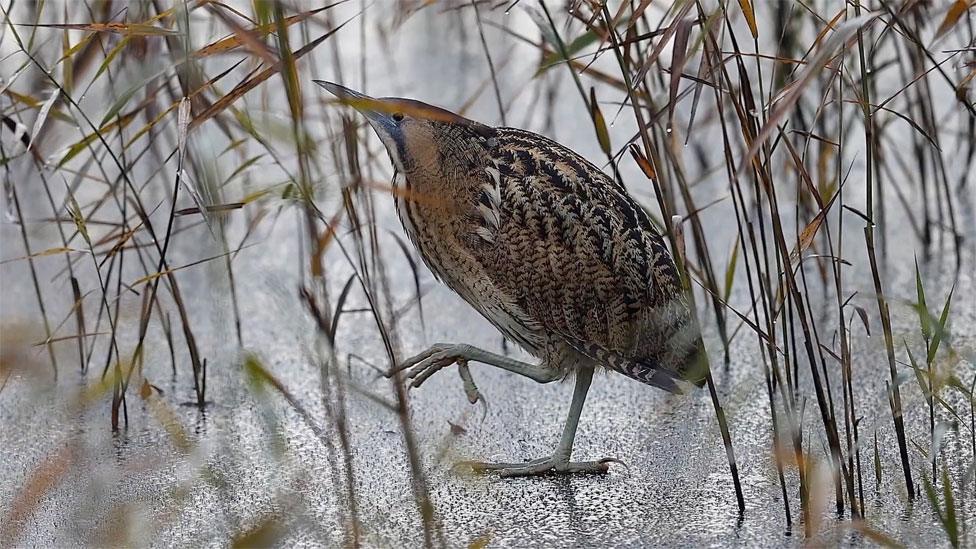Endangered birds get £230k of 'home improvements'
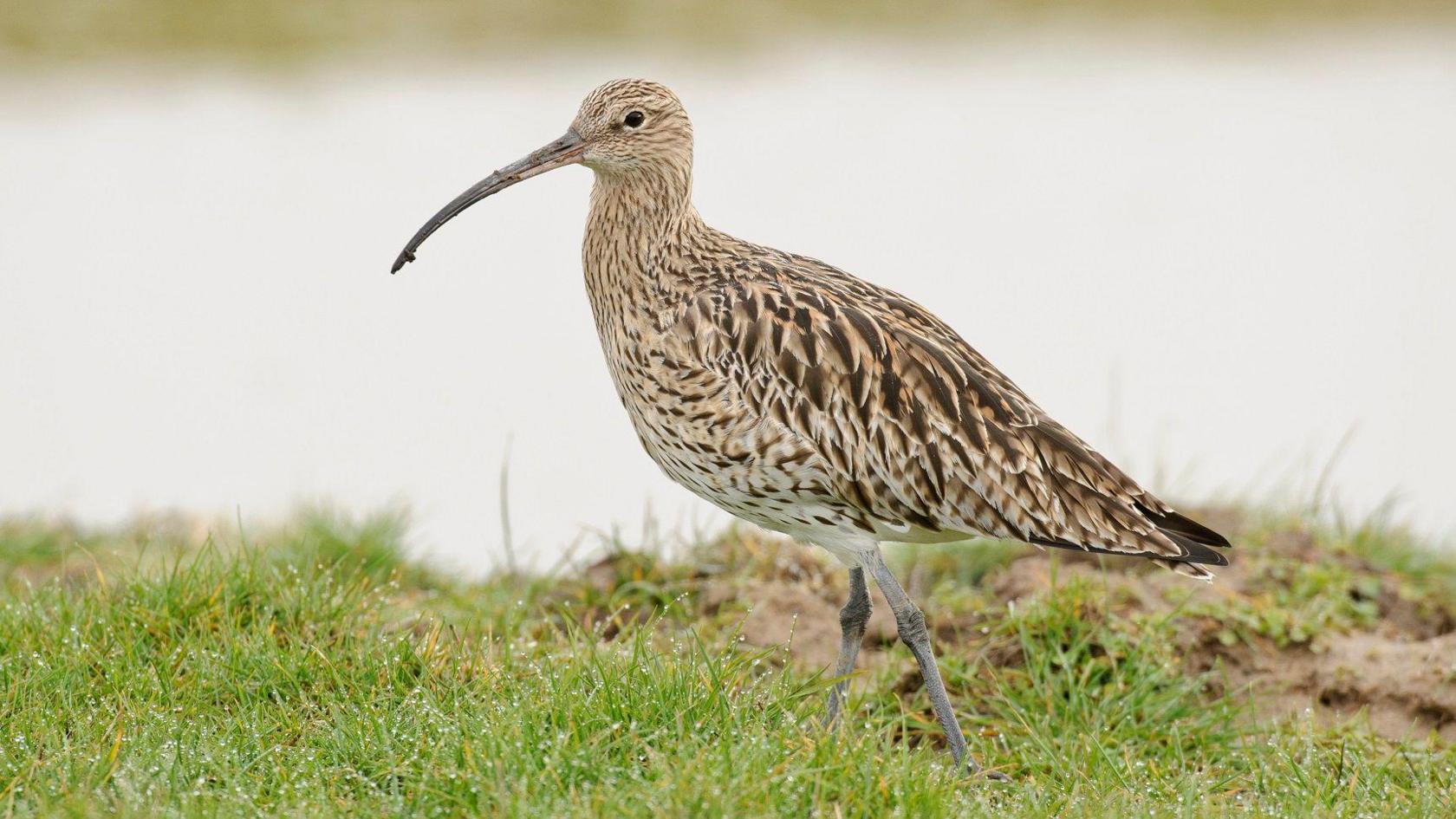
New measures at the reserve, between Aylesbury and Bicester, aim to boost curlew numbers, which have "plummeted" in the past century
At a glance
Work is being carried out to protect and preserve threatened species such as curlews, lapwings and redshanks
The nature reserve at Gallows Bridge Farm, Buckinghamshire will see new pools and anti-predator fencing created
A grant from the FCC Communities Foundation is enabling £230,000 of adaptations to take place
- Published
Endangered birds will receive £230,000 of “home improvements” including security cameras at a nature reserve.
A "bespoke habitat" for curlews and lapwings will include anti-predator fencing and new pools and at Gallows Bridge Farm, Buckinghamshire.
Berkshire, Buckinghamshire & Oxfordshire Wildlife Trust is carrying out the work with a grant from the FCC Communities Foundation.
It said curlew numbers have "plummeted" over the last century, with its conservation status now "red".
Mark Vallance, the trust's land manager, said: “The curlew is one of our most bizarre and beautiful birds; it has this iconic, downward-curved beak, and it makes a famous 'cur-lee' cry.”
The British Trust for Ornithology, external said the curlew's UK breeding population dropped by 48% between 1995 and 2020, while the RSPB's latest statistics, external recorded 58,500 breeding birds.
The trust said curlews had been nesting at Gallows Bridge Farm for years, but “their numbers are limited by predators”.
Officers will cut back hedgerows to reduce the opportunities for birds of prey to attack the curlews, which the trust said would also benefit one of Britain’s rarest butterflies, the brown hairstreak.
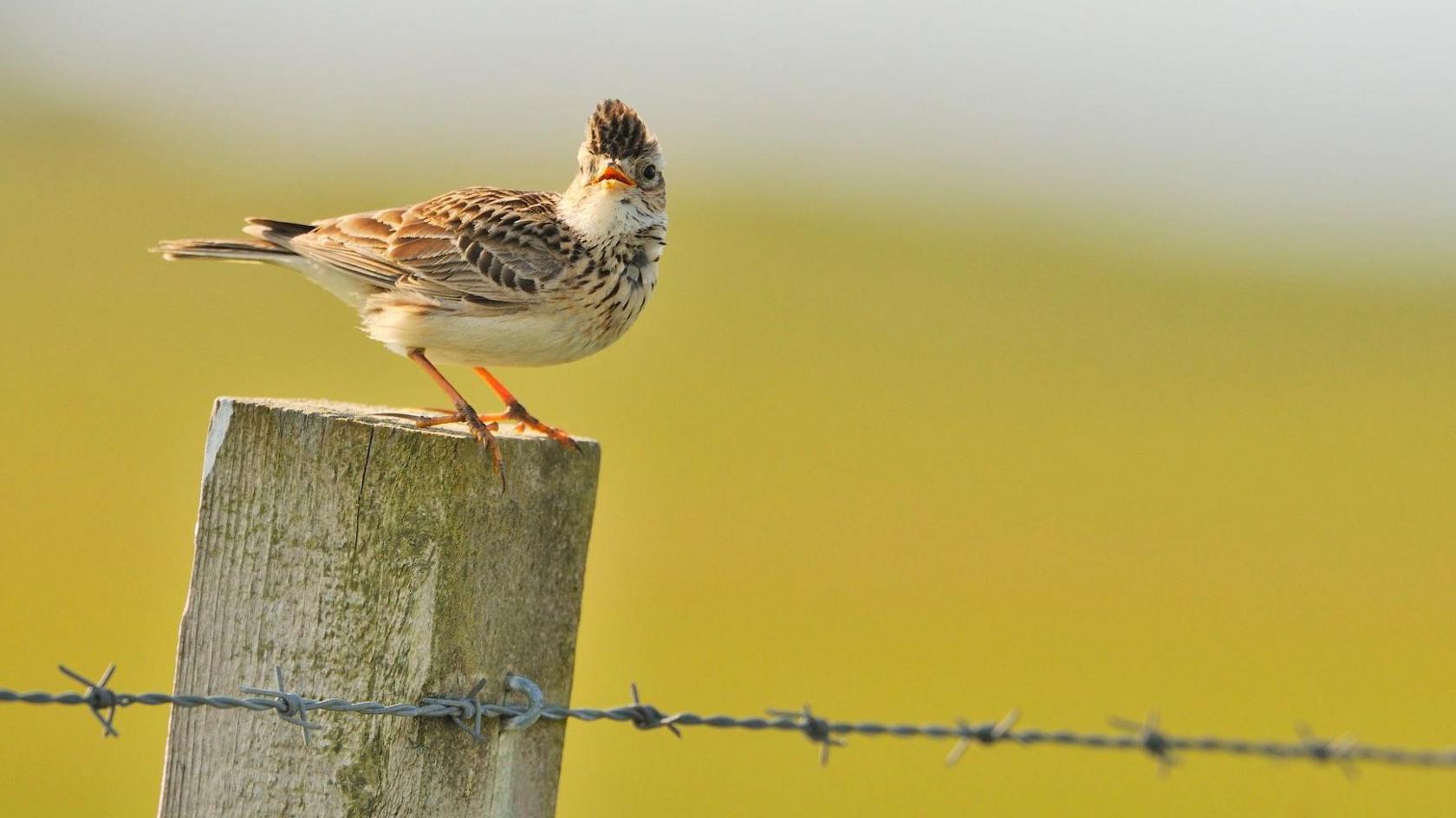
Other ground-nesting birds such as the skylark should also benefit from the project
The trust will create “enclosed nesting areas” surrounded by anti-predator fences that will keep out foxes and badgers, to protect other threatened species such as the lapwing and redshank.
The trust, along with volunteers from the Upper Thames Waders Group, they will use night-vision cameras during nesting season to analyse what threats the birds are facing and how well they are breeding.
Curlews and other wildfowl such as wigeon and golden plover will be able to bathe and feed in 30 new pools called scrapes.
The trust said the project would also benefit other ground-nesting birds such as skylarks, meadow pipits and yellow wagtails.
Penny Horne, spokesperson for the FCC Communities Foundation which gets funding from landfill operators, said: "We’re excited about the plans the trust has in place to improve the nature reserve for wildlife and visitors alike.
"We’re looking forward to this project making a difference to the endangered curlew population very soon."
Follow East of England news on Facebook, external, Instagram, external and X, external. Got a story? Email eastofenglandnews@bbc.co.uk, external or WhatsApp us on 0800 169 1830
Related topics
Related BBC stories
- Published12 November 2023
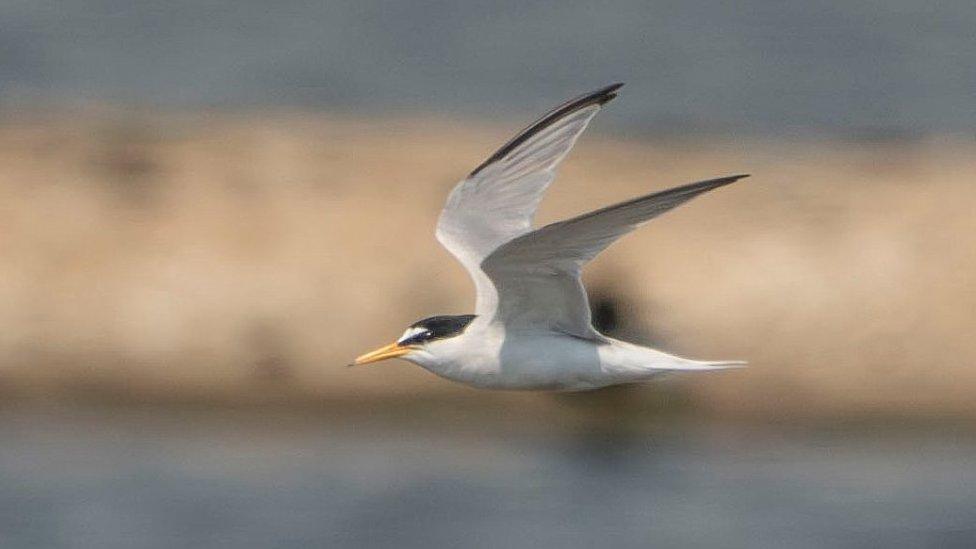
- Published3 November 2023
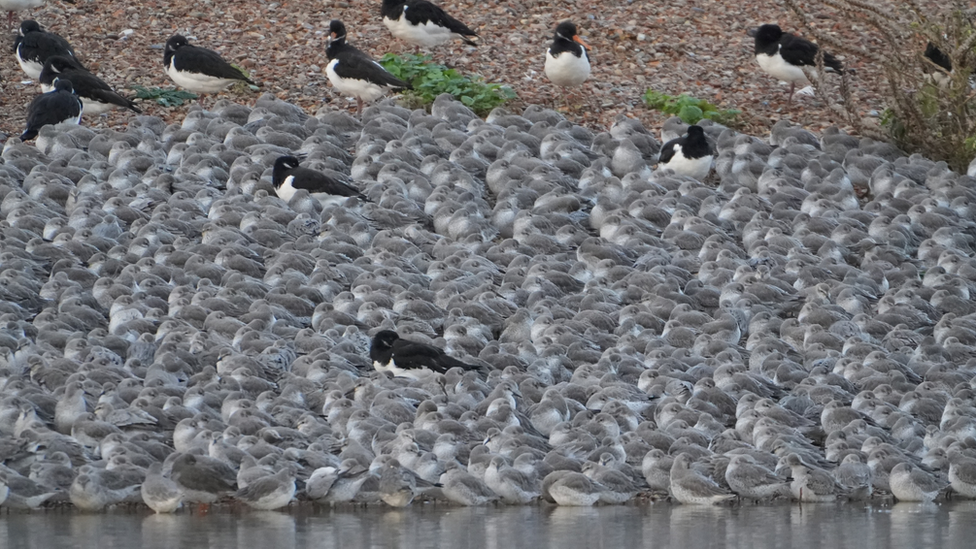
- Published4 October 2023
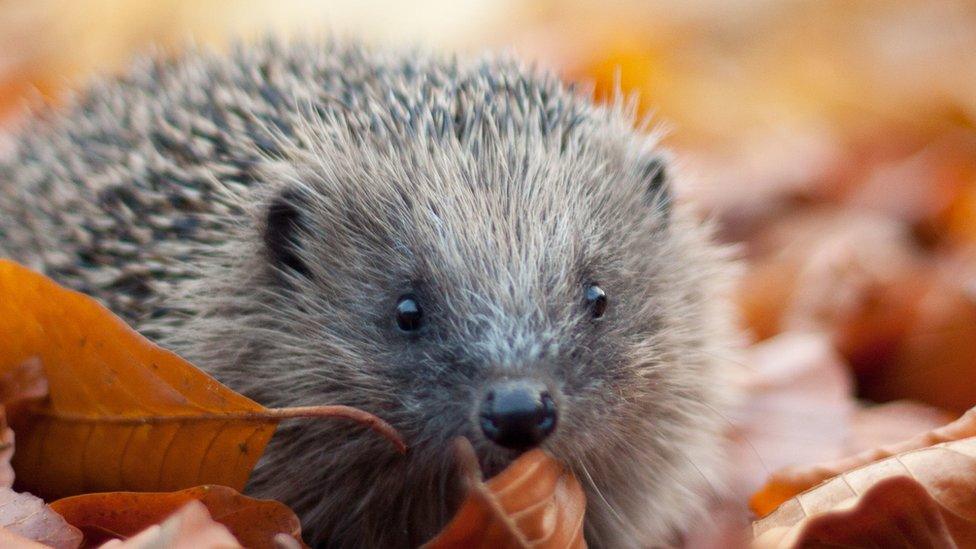
- Published5 July 2023
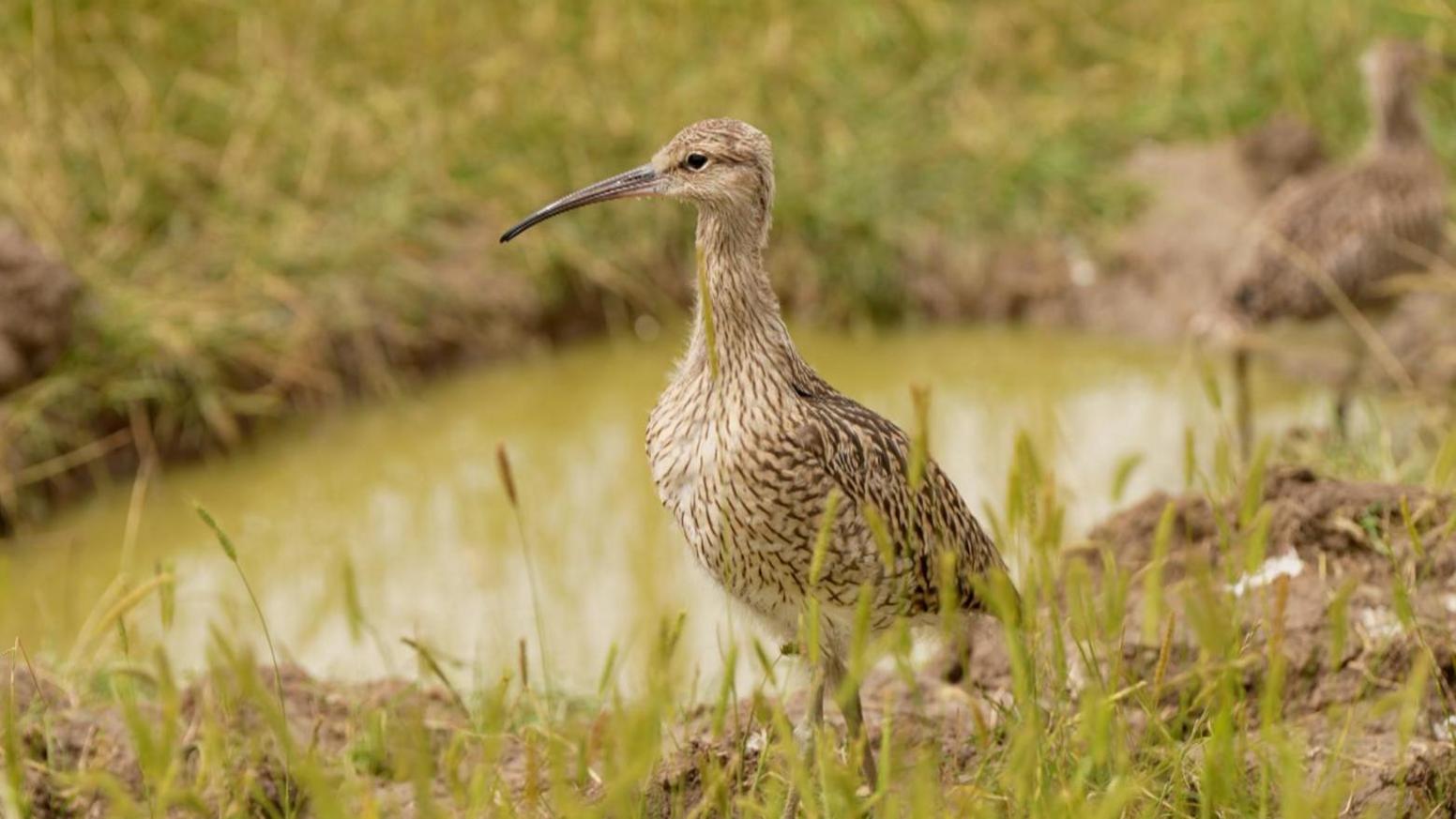
- Published21 January 2023
